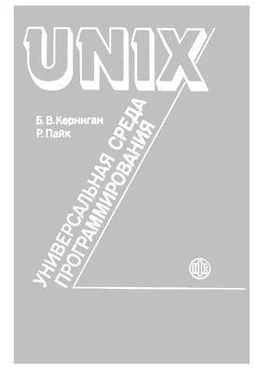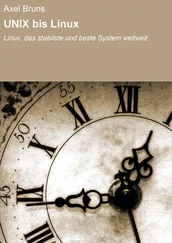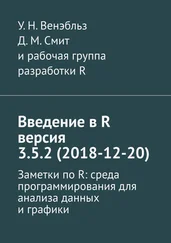switch (spname(argv[i], buf)) {
case -1: /* no match possible */
fp = efopen(argv[i], "r");
break;
case 1: /* corrected */
fprintf (stderr, "\"%s\"? ", buf);
if (ttyin() == 'n')
break;
argv[i] = buf;
/* fall through... */
case 0: /* exact match */
fp = efopen(argv[i], "r");
print(fp, pagesize);
fclose(fp);
}
exit(0);
}
print(fp, pagesize) /* print fp in pagesize chunks */
FILE *fp;
int pagesize;
{
static int lines = 0; /* number of lines so far */
char buf[BUFSIZ];
while (fgets(buf, sizeof buf, fp) != NULL)
if (++lines < pagesize) fputs(buf, stdout);
else {
buf[strlen(buf)-1] = '\0';
fputs(buf, stdout);
fflush(stdout);
ttyin();
lines = 0;
}
}
#include "ttyin2.c"
#include "efopen.c"
#include "spname.c"
# pick: select arguments
PATH=/bin:/usr/bin
for i # for each argument
do
echo -n "$i? " >/dev/tty
read response
case $response in
y*) echo $i ;;
q*) break
esac
done
/* pick: offer choice on each argument */
#include
char *progname; /* program name for error message */
main(argc, argv)
int argc;
char *argv[];
{
int i;
char buf[BUFSIZ];
progname = argv[0];
if (argc == 2 && strcmp(argv[1], "-") == 0) /* pick - */
while (fgets(buf, sizeof buf, stdin) != NULL) {
buf[strlen(buf)-1] = '\0'; /* drop newline */
pick(buf);
}
for (i = 1; i < argc; i++)
pick(argv[i]);
exit(0);
}
pick(s) /* offer choice of s */
char *s;
{
fprintf(stderr, "%s? ", s);
if (ttyin() == 'y')
printf("%s\n", s);
}
#include "ttyin2.c"
#include "efopen.c"
# prpages: compute number of pages that pr will print
wc $* |
awk '!/ total$/ { n += int(($1+55) / 56) }
END { print n }'
# put: install file into history
PATH=/bin:/usr/bin
case $# in
1) HIST=$1.H ;;
*) echo 'Usage: put file' 1>&2; exit 1 ;;
esac
if test ! -r $1
then
echo "put: can't open $1" 1>&2
exit 1
fi
trap 'rm -f /tmp/put.[ab]$$; exit 1 12 15
echo -n 'Summary: '
read Summary
if get -o /tmp/put.a$$ $1 # previous version
then # merge pieces
cp $1 /tmp/put.b$$ # current version
echo `getname` `date` $Summary" >>/tmp/put.b$$
diff -e $1 /tmp/put.a$$ >>/tmp/put.b$$ # latest diffs
sed -n '/^@@@/,$р' <$HIST >>/tmp/put.b$$ # old diffs
overwrite $HIST cat /tmp/put.b$$ # put it back
else # make a new one
echo "put: creating $HIST"
cp $1 $HIST
echo "@@@ `getname` `date` $Summary" >>$HIST
fi
rm -f /tmp/put.[ab]$$
/* readslow: keep reading, waiting for more */
#define SIZE 512 /* arbitrary */
main() {
char buf[SIZE];
int n;
for (;;) {
while ((n = read(0, buf, sizeof buf)) > 0)
write(1, buf, n);
sleep(10);
}
}
# replace: replace str1 in files with str2, in place
PATH=/bin:/usr/bin
case $# in
0|1|2) echo 'Usage: replace str1 str2 files' 1>&2; exit 1
esac
left="$1"; right="$2"; shift; shift
for i
do
overwrite $i sed "s@$left@$right@g" $i
done
#include
#include
#include
extern int errno;
main() {
int с, n;
char buf[100];
int onintr();
signal(SIGINT, onintr);
for (;;) {
n = read(0, buf, 100);
if (n > 0)
printf(buf);
else {
if (errno == EINTR) {
errno = 0;
printf("interrupt side %d\n", n);
} else {
printf("true end of file %d\n", n);
}
}
}
}
onintr() {
signal(SIGINT, onintr);
printf("interrupt\n");
}
/* spname: return correctly spelled filename */
/*
* spname(oldname, newname) char *oldname, *newname;
* returns -1 if no reasonable match to oldname,
* 0 if exact match,
* 1 if corrected.
* stores corrected name in newname.
*/
#include
#include
spname(oldname, newname)
char *oldname, *newname;
{
char *p, guess[DIRSIZ+1], best[DIRSIZ+1];
char *new = newname, *old = oldname;
for (;;) {
while (*old == '/') /* skip slashes */
*new++ = *old++;
*new = '\0';
if (*old == '\0') /* exact or corrected */
return strcmp(oldname, newname) != 0;
p = guess; /* copy next component into guess */
for ( ; *old != '/' && *old != '\0'; old++)
if (p < guess+DIRSIZ)
*p++ = *old;
*p = '\0';
if (mindist(newname, guess, best) >= 3)
return -1; /* hopeless */
for (p = best; *new = *p++; ) /* add to end */
new++; /* of newname */
}
}
mindist(dir, guess, best) /* search dir for guess */
Читать дальше
Конец ознакомительного отрывка
Купить книгу







![Александр Мещеряков - Terra Nipponica [Среда обитания и среда воображения]](/books/393699/aleksandr-mecheryakov-terra-nipponica-sreda-obitani-thumb.webp)

